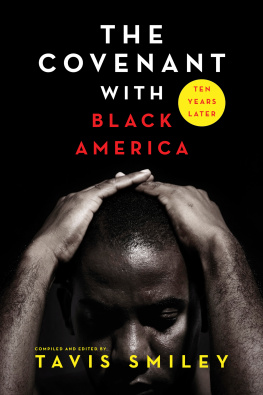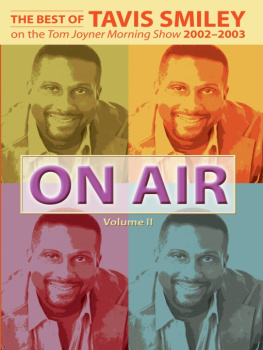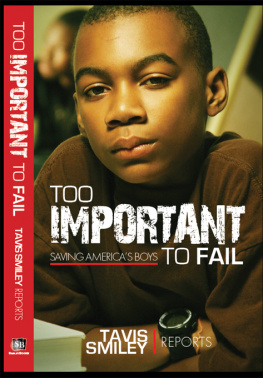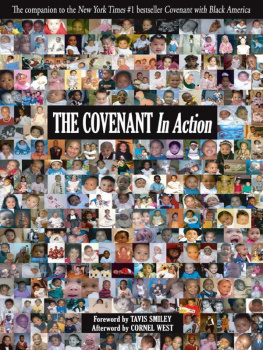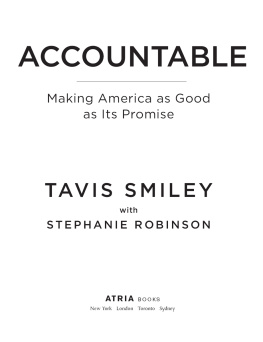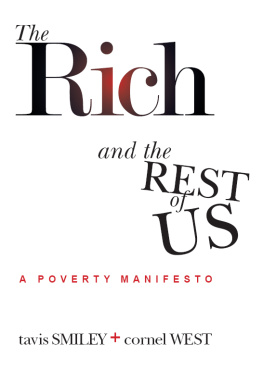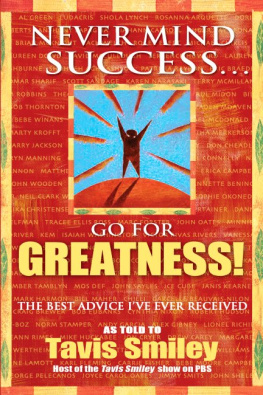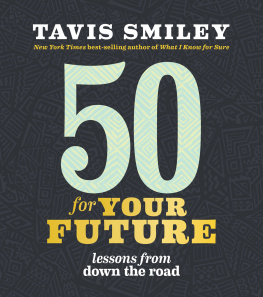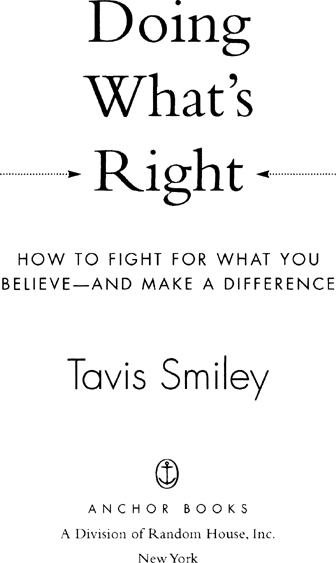Acknowledgments
Every time I hear someone refer to me as an author, I twinge. Not because I have anything against writers, but I guess first and foremost I see myself as an advocate. I actually have an immense amount of respect for authors; because of all the things I do (television, radio, and lectures), writing challenges me the most.
Fortunately, I have been blessed to be surrounded by good folk who have helped me meet the challenge for a fourth time now. In previous books, Ive had occasion to thank all of my family and friends. Your love keeps lifting me higher.
I do, however, need to thank the only editor I have ever had or hope to work with, Roger Scholl; his able assistant, Stephanie Rosenfeld, and the publisher of Doubleday, Steve Rubin, for embracing and agreeing to distribute my work.
The invaluable contribution of Sonya Ross has made this a book I am more than proud of. Thank you, Sonya!
People often ask me why I still fly between Los Angeles and Washington every week, as I have been for the past four years. Wouldnt it be easier just to live in Washington, where the show usually originates from, they ask. My response is simple. I return to LA weekly for the spiritual guidance and intellectual stimulation that I receive from my pastor, Bishop Noel Jones. Nobody does it better.
Finally, the people who represent me so well every day: Ken Browning, Wendi Chavis, Errol Collier, Kathye Davenport, Dawn Fong, Kimberly Tolbert, and my abiding friends Harold W. Patrick and Denise Pines.
Contents

Why We Need Advocates
T o let the politicians and the social indicators tell it, these are absolutely the best of times in the United States, the most prosperous society in the world. The economy is booming. Jobs abound. Crime is down. Unemployment is at a thirty-year low, the Dow is at an all-time high. More Americans own their own homes than ever before. Other factors that speak to quality of lifecollege enrollment, birthrates, salaries, consumer purchasesare also on the upswing.
But beneath these good vibes and good times lies a dark underbelly of despair, for Americas problems are more serious than we want to believe. Our economy is booming, but a number of countries in Asia, Eastern Europe, and South America have had serious problems which could eventually hit home with us. Jobs are abundant, but the majority of them either require advanced technical skills or are service-industry positions that barely pay a livable wagehardly a choice for unskilled people who are leaving the welfare rolls to join the workforce. We are not certain that Social Security or Medicare will survive long enough to take care of the huge baby boom generation. Crime is down, but violent crime is up, especially among juveniles, and the United States has the highest rate of incarceration in the world, basically rendering the jailed useless to the rest of society. Blacks and Hispanics remain less likely than whites to secure a home mortgage. And the Dow is hardly a barometer for measuring the heartbreak of those who are wondering where their next meal is coming from.
We can continue to ignore these unsolved problems, or pay short shrift to them, but if we do, they will remain with us well into the new millennium. They will worsen and foster an environment for new problems, creating a burden for our children and grandchildren.
We had heady prosperity during the 1980s too. But we chose to live for the day. We ran up huge debts on our credit cards, financed ourselves to the hilt, and got in way over our heads. We ran up huge debt on the nations credit cards as well, creating massive federal budget deficits that were creeping toward the trillions of dollars. Then we crashed and burned. We ended the eighties in a recession. Now, ten years later, things are good again. But we may be setting ourselves up for another crash-and-burn. Indeed, as I write this book, President Bill Clinton and the Republicans are at war over what to do with a federal budget surplus. The Republicans were pushing a plan to cut taxes by billions of dollars, while the president argued that the GOP tax cut would rob safety-net social programs of much-needed cash.
Right now, America is experiencing an erosion of values in its communities. There is an increasing sense of isolation in neighborhoods, as more of us simply pass through on our way from one city to the next and fewer of us truly get to know the family next door. Militia groups attack our government as an entity; indeed they work to destroy our government. They dont value patriotism as we know itthey think they are being patriotic by rejecting, in the name of constitutionally protected personal freedoms, everything the United States stands for. We watched millions of people die in Rwanda and Bosnia and did virtually nothing to stop those slaughters. Instead, we debated whether we needed to get involved in such conflicts because the United States cant police the world. Increasingly, holding elective office has become more about raising money than raising issues, where serving private interests becomes more important than serving the public good. We used to greet new neighbors with fresh-baked pies. Today we greet them with laws that demand disclosure of whether they are sex offenders. All of these things converge to turn the Internet, a concept that was meant to revolutionize our society, into an arena that offers up some of the worst around us: hatespeak, child pornography, sedition. We want the advances the Internet and its associated technology bring, but the Internet also exposes some of the excesses that have become so much a part of our society.
As people take up arms in anger, neither our workplaces nor our homesas evidenced by the rise in domestic shootingsoffer protection. Not even our schools and churches are safe. The rise in violence in our streets has become so commonplace that people have grown inured to it, until it takes place in their own backyards.


